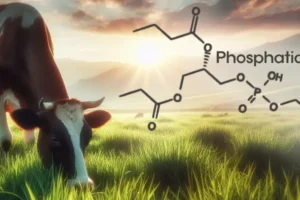Semen Health: 301
Are you dealing with fertility issues such as low sperm count or a seminal infection? Sometimes things get imbalanced, and semen health suffers. When this imbalance occurs, anything from weak sperm to infections can arise. Today, we’ll discuss semen health and what you can potentially do to ensure proper functioning.
Semen is a mixture of various substances, including proteins, enzymes, and antimicrobial agents, that work together to provide a protective environment for sperm. We are still learning about the various agents, but we are aware of some specific substances, such as magnesium, zinc, prostaglandins, citric acid, lysozyme, lactoferrin, spermine, and seminalplasmin. There are also free amino acids, fructose, enzymes, phosphorylcholine, and potassium. However, these are less of an issue regarding the point of this article and are actually addressed when we get our diets right. To ensure healthy semen, it is crucial to have adequate levels of these elements. What follows is a broad overview that might help you narrow down some of what you might be missing.
Magnesium and Zinc: Magnesium and zinc are essential in numerous enzymatic activities that are vital for mammals. Many men are actually deficient in both. This is important to know because they are found in high concentrations in the prostate and are released into the seminal fluid.
Zinc usually gets all the attention, but low magnesium levels are linked to decreased seminal quality in cases of chronic prostatitis, and it is magnesium that is responsible for decalcifying the prostate. These are huge clues. To improve magnesium levels, consider increasing your dietary intake of magnesium-rich foods such as fish, dark chocolate, and raisins, getting more Vitamin D (always with K2), limiting sugar and caffeine, avoiding antacids containing aluminum, or taking magnesium supplements.
Yes, zinc has antimicrobial properties and helps maintain the integrity of semen (and overall health). This should not be overlooked. However, zinc and magnesium work together, and when either is low, problems begin. To improve zinc levels, consider eating animal protein, taking Vitamin B3 and selenium, reducing cooking water, and avoiding inhibitors such as certain medications and environmental cadmium (where possible).
Prostaglandins: Prostaglandins are hormone-like substances that help prevent infections and inflammation in the reproductive tract. To improve prostaglandin levels, consider increasing Omega-3 fatty acid intake by eating fatty fish, consuming anti-inflammatory foods, or taking supplements such as fish oil.
Citric Acid: Citric acid helps neutralize the pH of semen and makes it less hospitable to harmful bacteria. It is important to differentiate between citric acid and Vitamin C. Vitamin C (ascorbic acid) and citric acid are related but are different compounds. Try to get citric acid from citric acid supplements, citrus fruits, or other fruits high in citric acids, such as strawberries.
Lysozyme: This one gets complicated. Lysozymes are organelles (balls of about 50 enzymes) that help protect against bacterial infections and can be found in various bodily fluids. The best way that I have heard this described is that they are the “garbage disposal” of a cell. Ideally, we want to improve lysosomal function. Some will suggest that there is no direct way to “improve” lysosomal activity. However, that might not be entirely accurate.
The best way to increase lysosomal function is to ensure enough lysosomal proteins, including enzymes. There is a pH component as well. Of course, a healthy diet, adequate sleep, and exercise can help this process along. However, bouts of autophagy can impact lysosomal activity, and Tomatidine is known to improve lysosomal function as well. For clarity, tomatidine is sometimes called Lycopersicin (not to be confused with Lycopene). Abundant sources (that we know of) are bitter heirloom tomatoes (older varieties), bitter cherry tomatoes, and unripe tomatoes. However, don’t go overboard on these. Too much can be a problem.
Lactoferrin: Lactoferrin is a protein that helps prevent the growth of bacteria and other microbes in semen. To increase lactoferrin levels, consider healing the gut, consuming a balanced diet high in iron, such as red meat and poultry, or probiotic supplements (such as Kefir), as certain gut bacteria produce lactoferrin.
Spermine: You will find a tremendous amount of overly complicated medical jargon on this one on the internet. This is probably because science is still trying to figure out some details. Here is a simplified version of what you need to know. Spermine is the result of an enzymatic reaction in the body. The simple version is that ornithine turns to putrescine, which turns to spermidine, which turns to spermine. To ensure proper spermine levels, you need to consume solid ornithine sources. However, ornithine is made in the body via essential amino acids, which means you need to consume complete proteins. These sources include meat, poultry, fish, and eggs. Aged cheese, mangoes, and watermelon are also good options here because they will boost parts of this process.
Seminalplasmin: Seminalplasmin is an antibiotic protein that our bodies create. This handy protein is often attributed to fighting urinary tract infections, but it also helps keep semen clean and helps to liquefy semen following ejaculation. Again, proteins are made up of amino acids. Complete proteins provide adequate amounts of the essentials.
The Others: If you are eating to address the previous deficiencies, your body should also address any issues regarding free amino acids, fructose, enzymes, phosphorylcholine, and potassium. Ultimately, a mixture of supplements and a correct diet should win out. Remember, improvement starts immediately, but true healing takes time.
To clarify: (Supplement Options) Protein, Zinc, Magnesium, Vitamin D/K2, B3, Selenium, Omega 3, probiotics, and Citric Acid. (Food Options) Includes red meat, eggs, dairy, poultry, citrus fruits, kefir, berries (raspberries, strawberries, blackberries, etc.), dark chocolate, mackerel, tuna, mango, shrimp, mussels, raisins, salmon, avocado, bananas, watermelon, tilapia, haddock, bitter tomatoes, and papaya.
Lifestyle Tips for Improving Semen Health:
Maintain a balanced diet: Consult with a nutritionist or dietitian to ensure that you get all the necessary nutrients to support overall health, including reproductive health.
Engage in regular exercise: Regular physical activity has been linked to increased prostaglandin production and reduced inflammation, which can support the immune system and improve semen health.
Manage stress: Chronic stress can impact semen health by reducing the production of prostaglandins, increasing inflammation, weakening the immune system, and reducing lysozyme production. Find ways to reduce stress through mindfulness, exercise, or stress-management strategies.
Avoid overheating: High temperatures, such as from hot tubs or saunas, can negatively affect semen production. Wear loose-fitting clothing and avoid tight pants to help keep the testicles cool.
Limit exposure to environmental toxins: Chemicals like pesticides, lead, and heavy metals can harm semen health.
Avoid harmful habits: Quit smoking, limit alcohol consumption, and avoid drug use to help improve semen health.
Get enough sleep: Adequate sleep is essential for overall health, and research has linked a lack of sleep to decreased sperm quality. Getting enough sleep can help increase lactoferrin levels and improve lysozyme production.
Another Angle to Consider:
The seminal vesicles are another part of the male reproductive system and play a role in semen production by producing fluid that mixes with sperm to form semen. I point this out specifically because the seminal vesicles are often overlooked when dealing with semen issues. Infections, cysts, tumors, calcification, and underlying medical conditions like diabetes, kidney disease, and seminal vesicle infections can cause issues with the seminal vesicles. Treatment options vary and depend on the cause of the problem and may include antibiotics, paracentesis, or minimally invasive surgery. Be sure to talk to your physician if you think you are dealing with an infection. You may need to speak with a male fertility specialist or andrologist.
Disclaimers
Keep in mind that this list is not exhaustive, and the exact composition of semen can vary from person to person. Moreover, the precise mechanisms by which these substances function as antimicrobial agents are not fully understood yet. Yes, these tips can improve semen health, but if you have concerns about fertility or infection, it’s best to consult a physician who specializes in this field. It’s also important to consult with a healthcare provider before starting any supplement regimen. Similarly, it’s always best to speak with a healthcare provider before changing your diet or lifestyle. Finally, if you would like ideas regarding a healing diet, you are encouraged to review my Nutritional Philosophy.
Dr. Robertson is a health researcher and educator, not a physician. The information provided here is not medical advice, a professional diagnosis, opinion, treatment, or service to you or any other individual. The information provided is for educational and anecdotal purposes only and is not a substitute for medical or professional care. You should not use the information in place of a visit, call consultation, or the advice of your physician or other healthcare providers. Dr. Robertson is not liable or responsible for any advice, course of treatment, diagnosis, or additional information, services, or product you obtain or utilize. IF YOU BELIEVE YOU HAVE A MEDICAL EMERGENCY, YOU SHOULD IMMEDIATELY CALL 911 OR YOUR PHYSICIAN.




